Popular survival challenge in Hunan mountains stresses harmony with environment
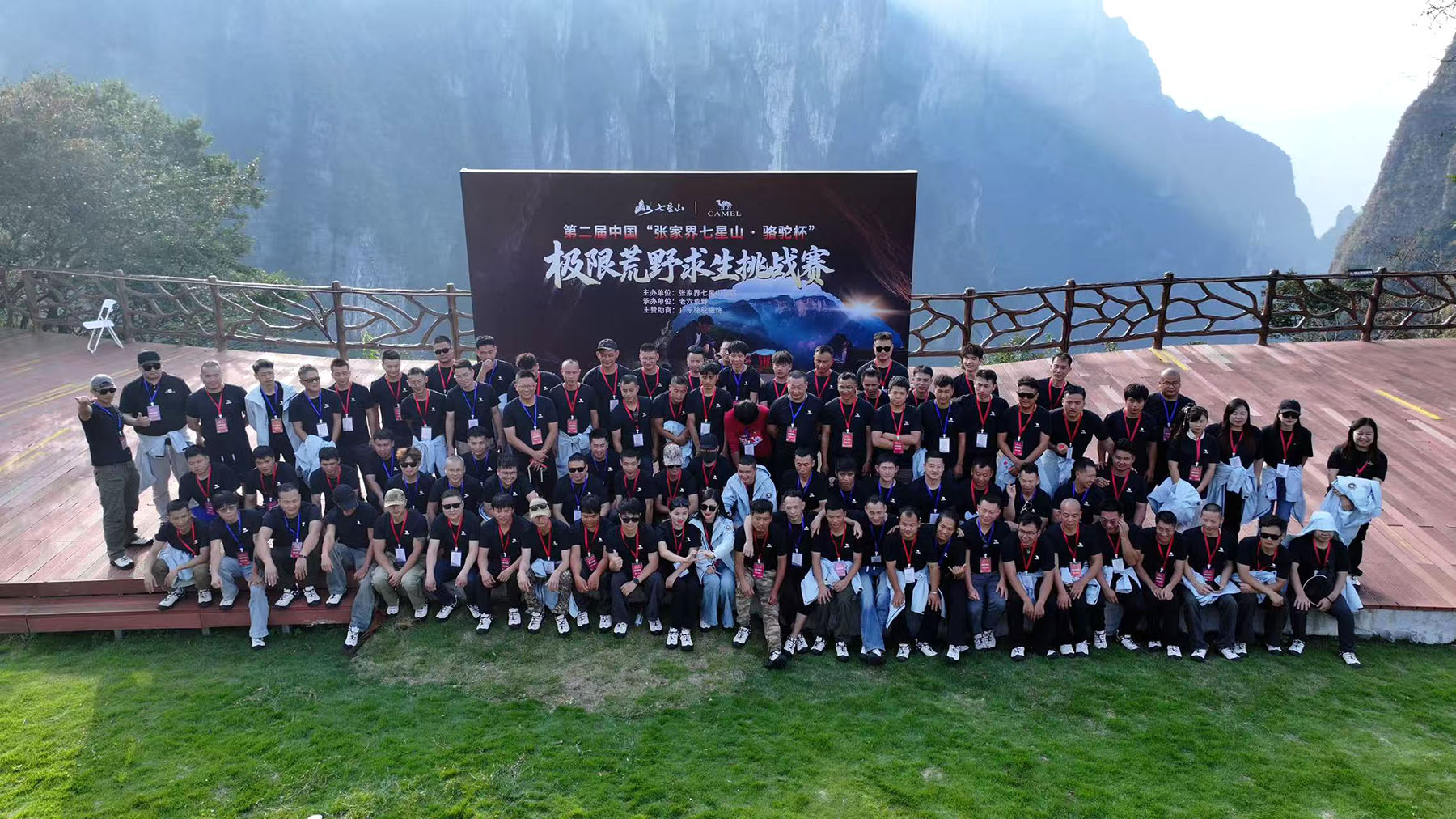
With a fresh coat of pink nail polish and wearing full makeup — including meticulously applied false eyelashes — Yang Chaoqin arrived at rugged Qixing Mountain in early October.
Known for its dramatic karst landscape and array of adventure activities, the area in Zhangjiajie, Hunan province, is a popular destination for hikers.
Yang was about to embrace a wilderness challenge, belying her glamorous appearance. Thirty days later, the 29-year-old engineering graduate would be living in a mountain cave, the skin on her fingers and lips chapped from the autumn chill of the forest.
In one livestream, she swallows a locust whole, turns to the camera and calmly says, "Anything that moves is protein."
Yang, who is also known as "Leng Meiren" (Cold Beauty), was one of the contestants in the Zhangjiajie Qixing Mountain Wilderness Survival Challenge, which has become a sensation on Chinese social media.
"I couldn't believe she was also taking part in the challenge," one of her competitors said. "I was joking that she won't last more than two days."

The challenge started on Oct 9 in the Qixing Mountain area with an initial field of 100 contestants, and it is about to enter its final stage.
Contestants who voluntarily joined the event were allowed to enter the designated forest area wearing only regular clothes and armed with a hatchet. They were challenged to survive in the wilderness like their ancestors did — building shelters, making fires from scratch, and searching for food sources.
The challenge has already attracted a level of attention far beyond organizers' expectations, said Tian Jianbing, general manager of the Zhangjiajie Qixing Mountain Scenic Area.
Its official channels on Douyin, Kuaishou, RedNote and other platforms have gained millions of followers, who tune in every day to check updated videos of their favorite contestants and debate survival strategies.
Videos of the challenge have been dominating discussion trends across all Chinese digital platforms, attracting more than 12 billion total views by Nov 12, Tian said.
While overseas wilderness survival shows like Man vs. Wild and Survivor have achieved global success, the Zhangjiajie Qixing Mountain Challenge has forged its own path, developing a distinctly Chinese interpretation of the genre.
"Epic challenge, amazing contestants! Keep fighting!" said Man vs. Wild's British host Bear Grylls in a comment on the organizers' Douyin channel.
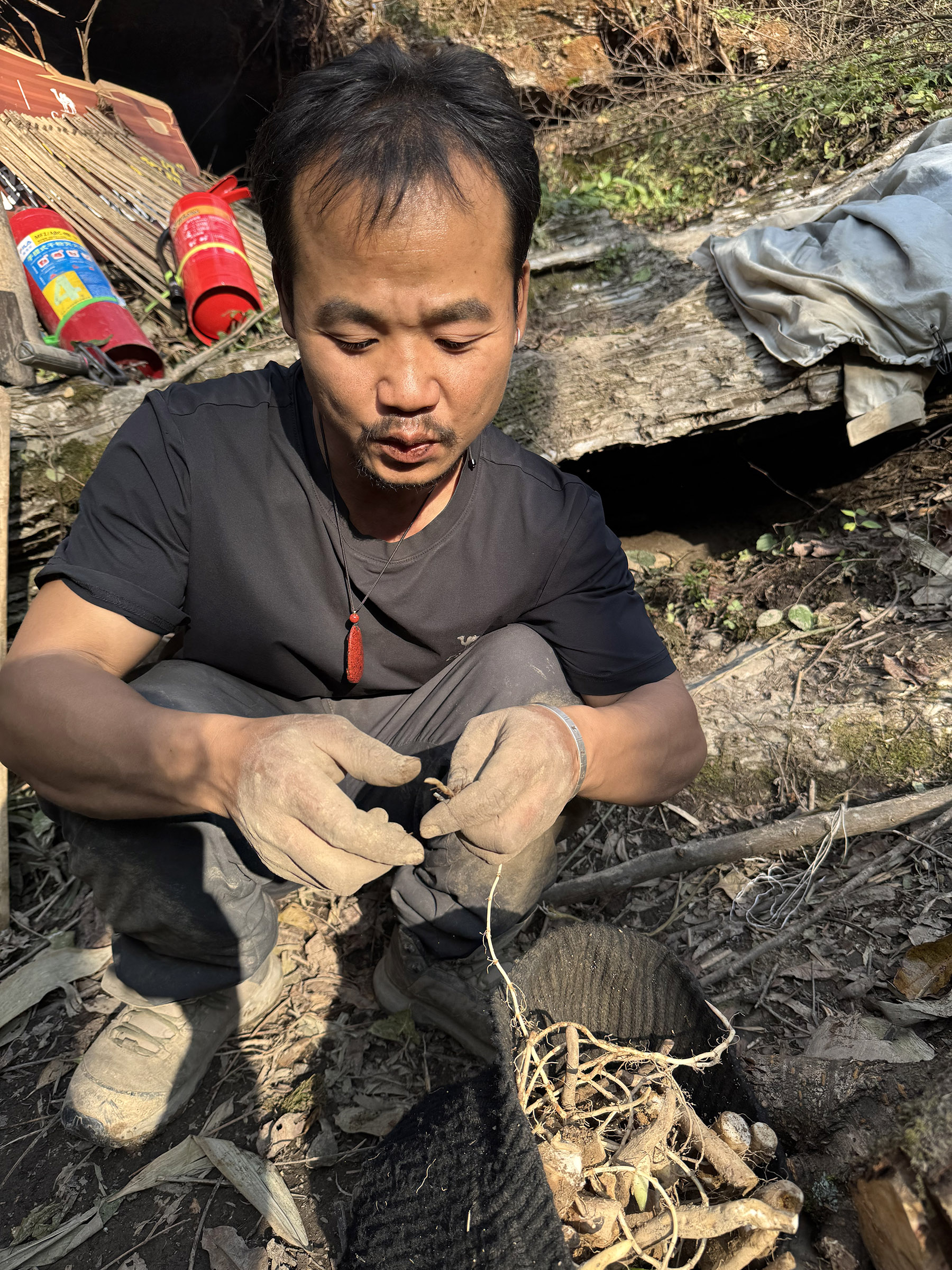
Cold Beauty's story
Many of the contestants were surprised when they saw Yang on the first day with her carefully curated appearance.
However, as contestants dropped out after days or even weeks of extreme deprivation, the young woman from Yunnan province showed surprising resilience.
In one video clip posted by the organizers, Yang is seen huddled in a thatched shelter, her face and clothes covered in dirt, but her voice steady and determined.
"The more desperate it gets, the cooler I stay," she tells the camera. The quote quickly went viral, becoming her signature catchphrase.
More than a month into the challenge, Yang was the only remaining female contestant. Although she had lost more than five kilograms, she successfully overcame multiple difficulties, including the lack of food, injury and menstruation.
On Friday, after being diagnosed with malnutrition following a medical examination, Yang was forced to drop out of the challenge. She was one of the last 15 contestants, and was only a few steps away from the final.
"She didn't want to quit," Long Wu, general director of the event, told Jimu News after Yang's medical examination. "But safety is paramount."
Yang showed remarkable resilience and had an outstanding performance during the challenge, representing "a positive image of Chinese women", Long said.
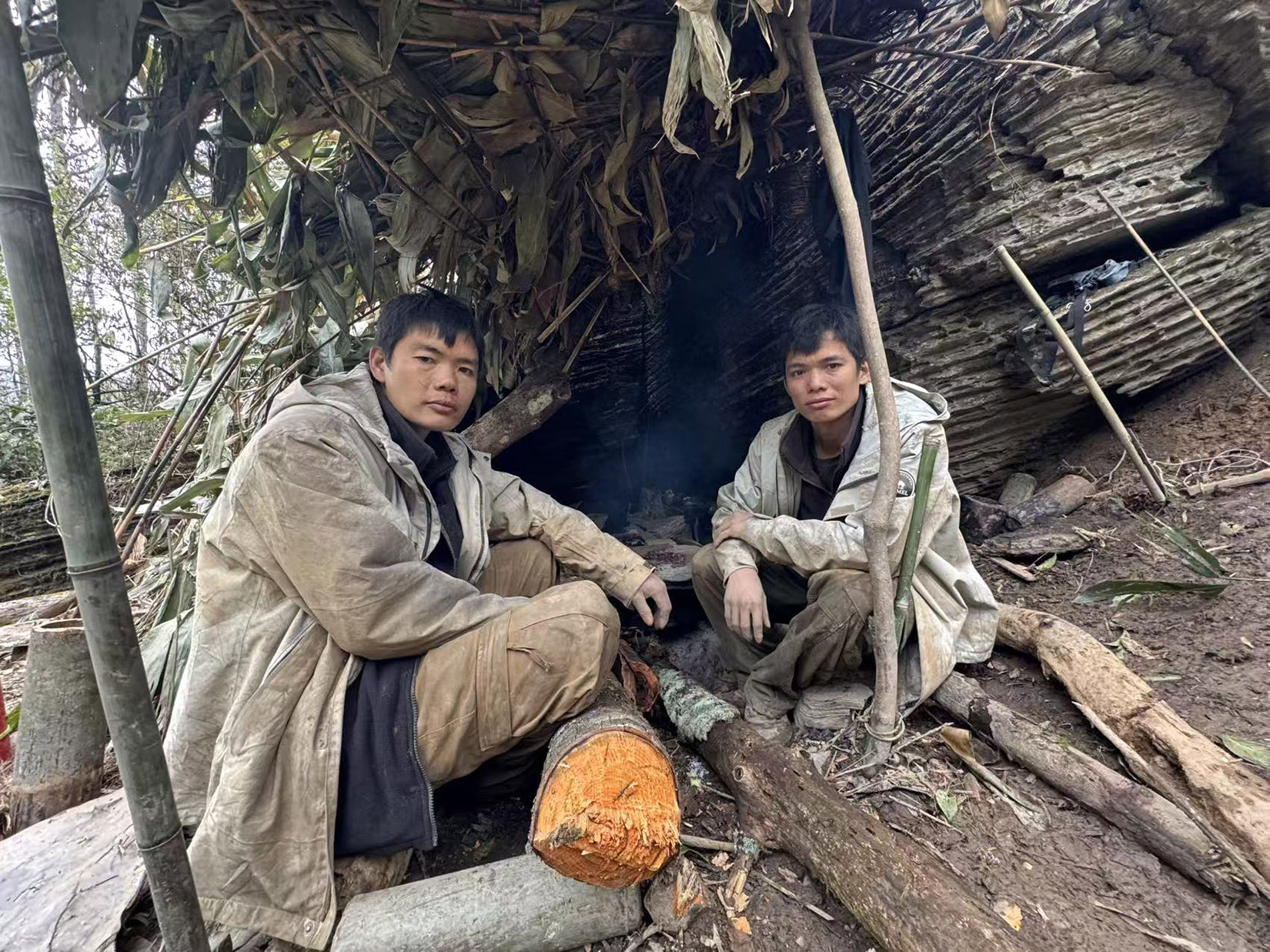
Safety first
Tian, general manager of the scenic area, stressed the importance of safety during the challenge.
"We conducted rigorous safety inspections of the area before the challenge began, and eliminated potential hazards," Tian said. "All participants were required to provide comprehensive health examination reports."
On the event's opening day, professional instructors gave all contestants training that covered treatment of injuries, emergency response, and safety procedures for starting and using fire.
A multi-layered protection system is in place for the duration of the competition. Safety checkpoints and round-the-clock patrols have been established throughout the area, while doctors conduct regular health assessments of the contestants. Fire extinguishers have been placed at selected locations, and the contestants' management of fire is monitored all the time, Tian said.
The event is operated under a comprehensive emergency response framework that coordinates multiple government departments, including culture and tourism, emergency management, healthcare, environmental protection, public security and fire services.
As the competition approaches the final round, safety protocols were intensified. Each of the remaining 14 contestants has been assigned a safety officer, who will provide 24-hour monitoring and support. Medical examinations are a daily routine, with the details determined by a hospital and the local health commission, Tian said.
Due to the sudden drop in temperature over the weekend, all the participants have started descending the mountain for a five-day rest, and each will receive a 20,000 yuan ($2,813) encouragement bonus. Also, the organizers have announced that all 14 remaining participants will advance to the finals.
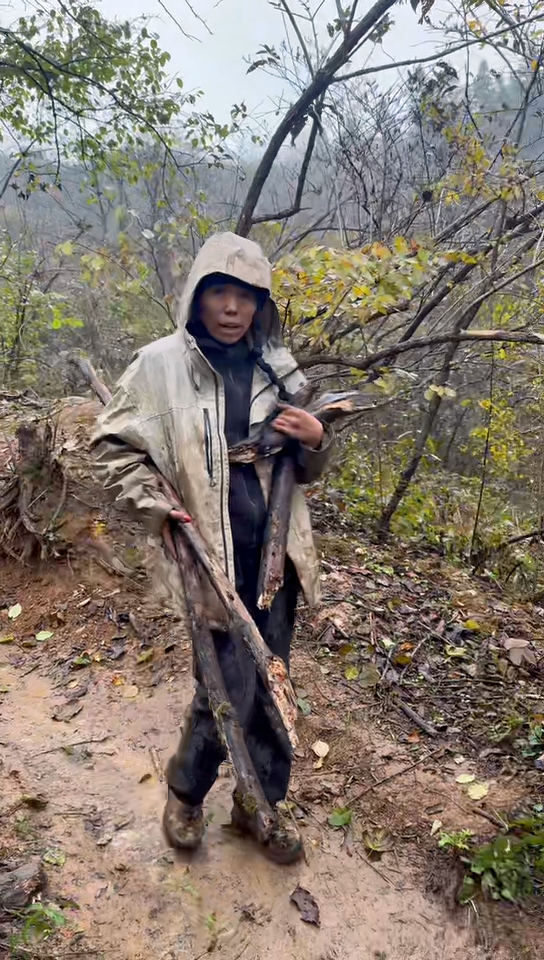
Deep connection
Zhang Bolin, or "Lin Bei", is another superstar among followers of the event. The youngest of the contestants, the 25-year-old has captured the public's imagination with his deep, almost spiritual connection to the environment.
Frequently seen climbing trees with agile ease and mimicking monkey calls in the forest, the traditional Chinese medicine graduate has been described by online commentators as having "abandoned a doctor's career for the wild".
In the videos, Zhang can be seen building his earth-walled shelter between two huge boulders, making a bed out of bamboo leaves, eating wild Chinese gooseberries foraged in the forest with delight, and solving — almost effortlessly — the critical challenge of starting and keeping alive fires in damp conditions.
"While others are trying to survive in the wild, he is vacationing in it," is a typical online response to Zhang's enjoyment of the wild environment.
Having suffered setbacks in his career, Zhang said he felt relaxed when integrating into nature in Zhangjiajie. This connection helps "bury the past frustrations", he said.

This sentiment might partly explain the explosive popularity of the event on social media.
As young urban Chinese are grappling with pressure from work schedules and targets, mortgages, and complex social obligations, the live nature challenge offers them a rare and free emotional escape, said Tian, general manager of the scenic area.
Viewers immersed in the intricate stresses of urban life find themselves captivated by a world where the logic of survival is stripped to its most fundamental core. On screen, the overarching goals of the contestants are primal and pure — to find food and secure shelter. This simplicity of purpose provides a form of mental respite, Tian said.
For many viewers, watching the contestants spend hours painstakingly rubbing a stick to start a fire or patiently constructing a basic shelter offers a special sense of therapy. It serves as a compelling reminder of a simpler existence, where success is measured not by monthly performance reviews or social standings, but by tangible, immediate needs.
"My spiritual exhaustion was healed watching them," said one online comment from a viewer.
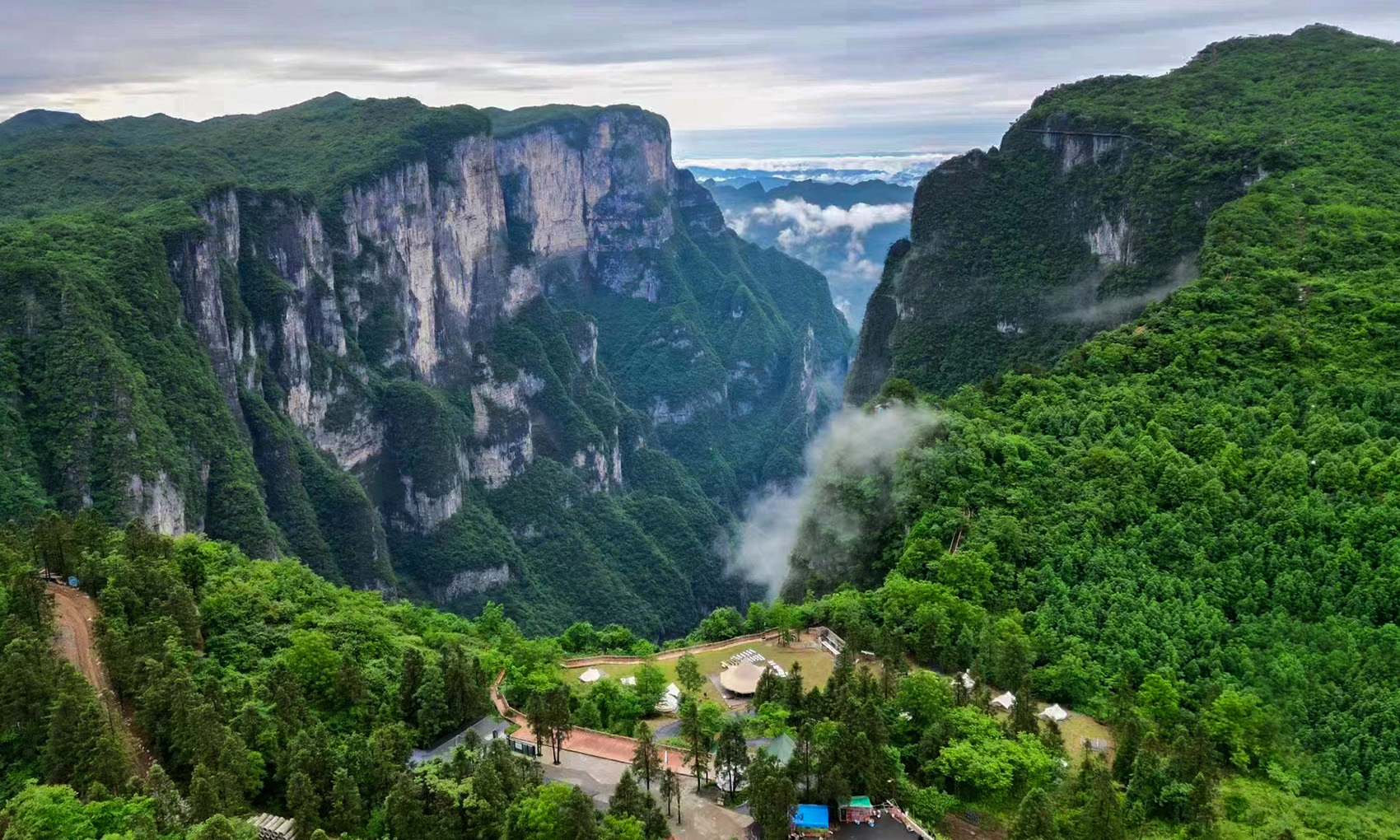
Authenticity is key
The other key attraction is the challenge's authenticity. Unlike many reality shows that rely on scripts to create storylines, the survival challenge has carved out a niche with its spirit of "no supplies, no script, real survival".
This authenticity is etched into every detail. In the videos, fans see the contestants' dirt-smudged faces, their cracked and bleeding fingers, and their frustration at spending two hours trying to start a fire. These unedited, often uncomfortable scenes of wilderness survival have become the event's most compelling narrative.
To bridge the gap between the on-screen wilderness struggle and the audience, the organizers introduced a series of fan-voted awards, including "Best Fire-Making Award" and "Favorite Contestant", all decided through viewers' votes during the livestream.
For Tian, the biggest difference between the event and wilderness survival shows in the West is its philosophical approach. While productions from abroad often emphasize conquering nature through individual heroics and confrontation, the Zhangjiajie challenge advocates harmonious coexistence with nature, he said.
Rather than timed rescues and escapes featured in the overseas shows, the Zhangjiajie challenge emphasizes long-term adaptation and resource cultivation, embracing what organizers term an "agrarian-style survival strategy".
Instead of cutting down trees, participants are encouraged to use deadwood and kindling from the forest for fuel. They are also prohibited from hunting any wildlife. Instead, organizers introduced domesticated animals, including chickens and pigs, into the environment as food sources for the contestants before the challenge commenced.
All these efforts were made to strike a balance between authentic survival experiences and environmental responsibility, Tian said.
While audiences are eagerly anticipating which contestants will advance to the finals, the organizers are already looking to the future. Leveraging Zhangjiajie's global reputation, they are strategically positioning the competition to have a long-term influence.
There will be improvements to future events, including refined regulations, a more comprehensive ranking system, and enhanced medical monitoring protocols, Tian said.
Meanwhile, the Qixing Mountain Scenic Area is exploring ways to make use of the competition's success to promote tourism.
Initiatives include establishing a permanent wilderness survival base and developing specialized wilderness experience routes for tourists. These products will offer ordinary visitors a chance to learn essential survival skills under professional guidance, such as making fire, purifying water, and identifying wild plants, Tian said.
Contact the writers at limuyun@chinadaily.com.cn


